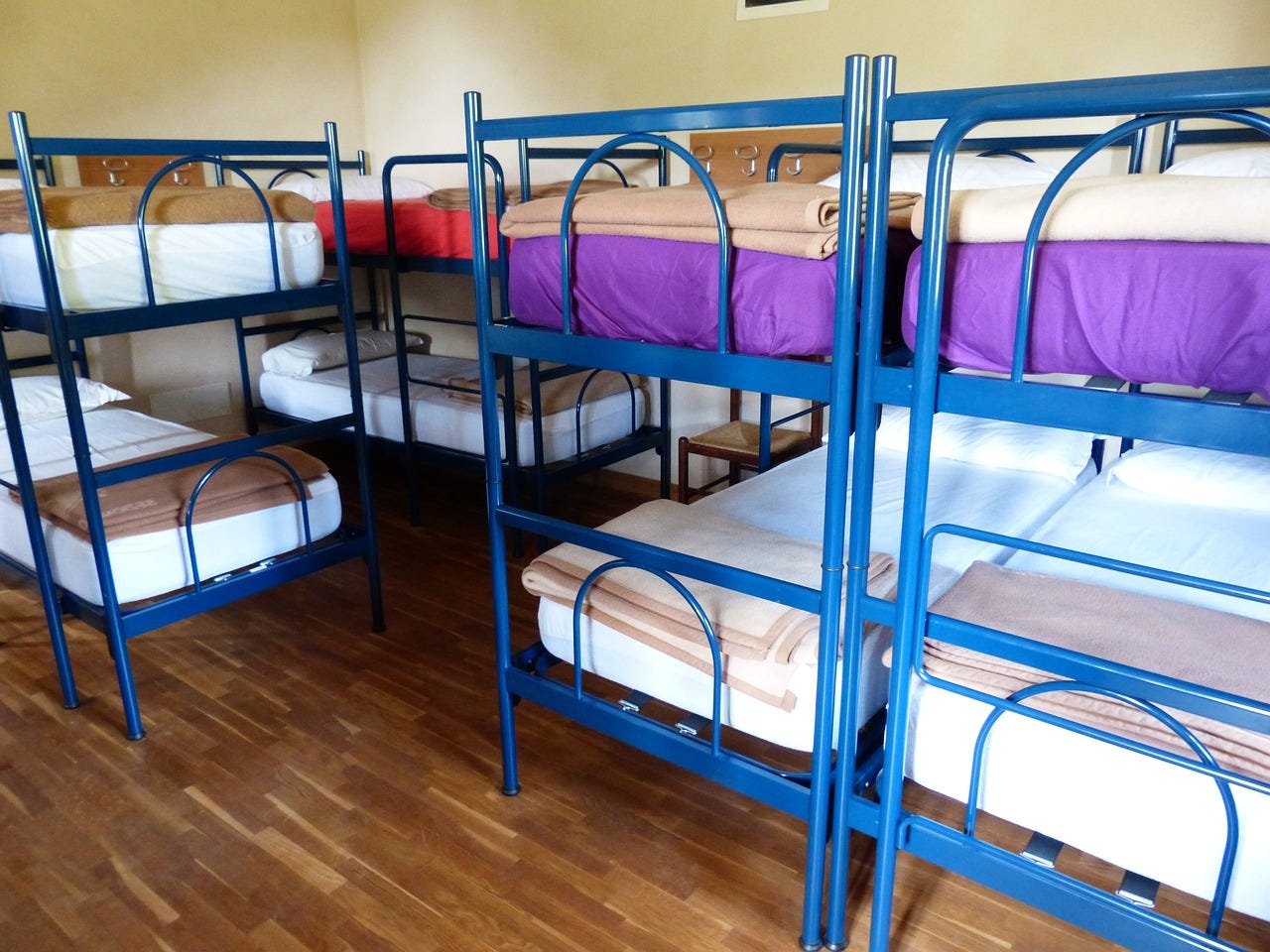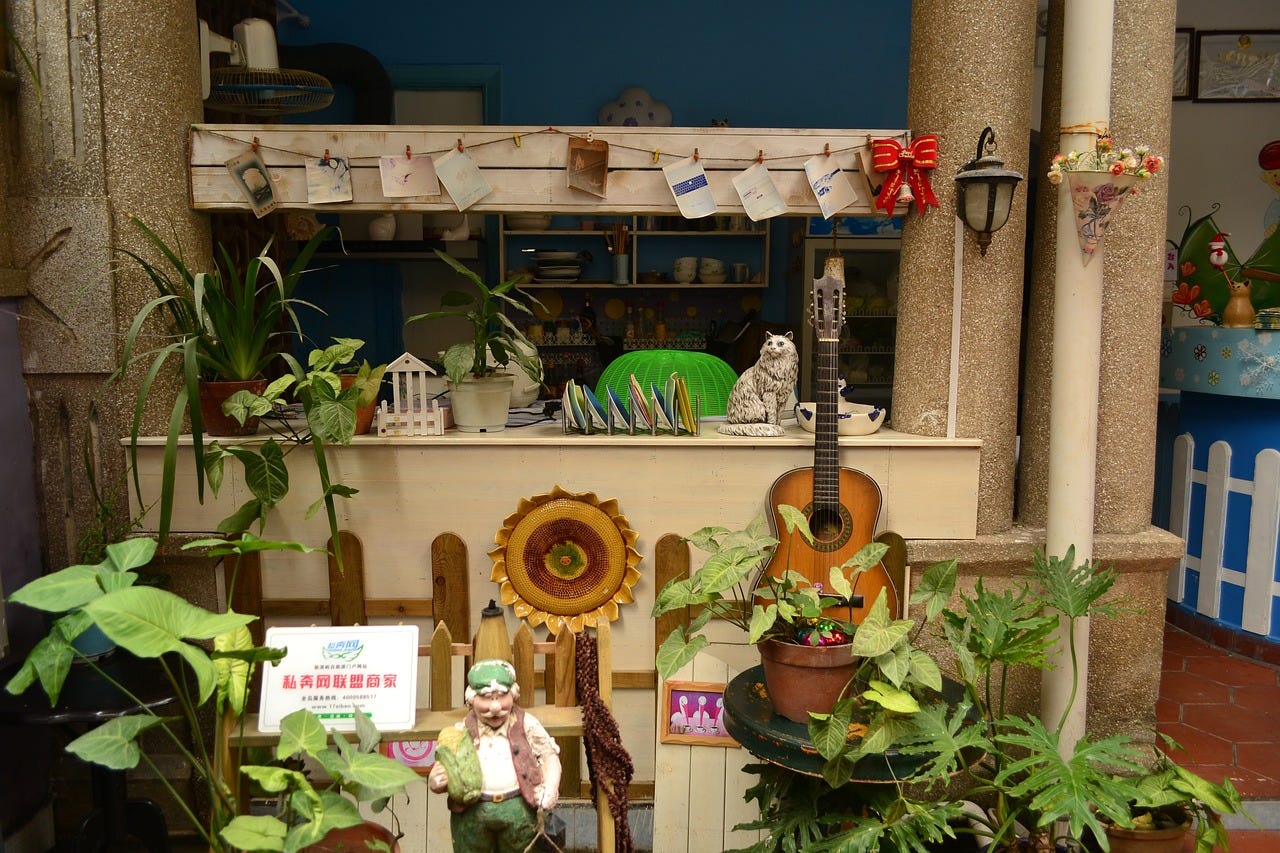There is little doubt, as a solo traveler, that staying overnight in a hostel is one of the cheapest ways to lay your head. It can also be the most stressful unless you make some preparations.
What Are Hostels?
At their most basic, hostels provide somewhere for the night in a shared dormitory filled with other people. In some places, that is all you will find, although that has changed a lot over the years, with more comfortable accommodation becoming the norm.
The other end of the scale is the place which, although it calls itself a hostel, is more like a bed-and-breakfast place or mini-hotel with single rooms, a shower, fast Wi-Fi, and someone who cooks you breakfast.
Most hostels are somewhere in between.
The best part of the hostel experience is meeting other people and fellow solo travelers.
Here are some hints and tricks I have learned about staying in hostels around the world, from the United Kingdom to the United States, New Zealand, Hong Kong, and beyond.
Finding Hostels
This is a simple operation in today’s ultra-connected world.
Just head for Hostelworld which has the largest selection of hostels across the globe. Booking.com and Airbnb also have hostels listed, but nowhere near as many as the main Hostelworld site.
You can search by location, price, or distance from the centre of town. Make your selection and book online. Look also, for the option of free cancellation should your plans change, although not all hostels offer that.
Choosing the Right Hostel
Hostels come in all shapes and sizes.
The most important decision is going to be location, location, location. Some hostels can be right in the centre of a city and others some distance away from the action. If the hostel is some way out, then it may be cheaper, but what are the transport links like? Will what you save in cost, be eaten up by a bus fare into town - or is there even a bus?
Look at the area around the hostel. Is it safe, especially at night, if you are walking back late in the evening?
Some hostels are youth orientated where you can expect a busy and noisy atmosphere which may be perfect. Others can be more relaxed and cater to a wider clientele.
You have found your ideal hostel and arrived at check-in - what next?
Choose Your Bed Wisely
If the hostel offers single rooms, ask for one that is away from the traffic or train line, so you have a quiet night.
In a dorm, you may be given a bunk number and are stuck with it. With a free choice of bed, opt for one that is away from the door or bathroom, as there will be fewer people passing you at 3 a.m. Look for a power point for charging your electronics, but never leave them unattended.
With bunks rather than beds. do you want the lower which is easier to access, or the top which provides a little more privacy?
Hostel Etiquette
If you snore, book a separate room, otherwise, your fellow sleepers will curse you all night.
Keeping your voice down in the dorm and not switching on the main light after 10 p.m. is a courtesy to others.
Make sure your backpack and the contents don’t spill out across the room and importantly, don’t cause a trip hazard at night. Keep the bathroom area clean after you have used it.
Eating in dorm rooms is not encouraged, at least by me. I remember sharing a dorm room, where one of the other guests stood in the middle of the room cutting up and eating a melon. I have never heard anyone before or since, who could make quite such a noise eating.
Check any hostel rules, such as when outer doors may be locked.
The Hostel Locker
Any hostel worthy of the name hostel will provide personal lockers for your kit.
As well as keeping your belongings tidy, lockers offer a level of security when you are exploring the local sights.
Carry your own padlock. One with a code is better than keys, in case they become lost.
Your fellow travelers may look friendly and trustworthy, but there is always someone, including staff, after your valuables. I learned this at my cost in the USA when I left an iPod on charge, popped to the bathroom for a few minutes, and returned to find it stolen.
The Hostel Lounge
The lounge is the nerve centre of the hostel.
Here you will meet fellow solo travelers, couples, and families. Everyone can swap stories of the road traveled and perhaps share the locations of great places to visit on your route.
In the lounge, you may meet up with people and go off with them for the evening to explore the town, for a meal, or perhaps visit a bar.
Hostel lounges in the evening can be a hive of activity and a social centre.
Cooking Meals
Hostels vary widely in facilities for you to prepare your own meals.
I have stayed in places where an immaculate kitchen was available with plenty of space for everyone. In another, the kitchen and utensils were so dirty it turned my stomach. A complaint at the latter to the owner resulted in a couldn’t-care-less shrug of the shoulders. Fortunately, those are in the minority today.
The general rule in the kitchen is to work around others. If you have items for the fridge, put your name on them and when you leave, remove everything.
Washing the pots and pans quickly so others can use them is both polite and necessary.
The Hostel Breakfast
Some places offer breakfast included in the price of your bed.
Be on time for breakfast, as food may run out if you sleep in. Hostel breakfasts are not as generous as a hotel and some travelers will use it as an opportunity to stock up on food for their day.
When it is gone - it is gone!
Check and Leave Reviews
As part of your selection process when looking for a hostel, check the reviews.
Always scroll down the page, as some unscrupulous hostel owners will try to hide bad reviews, and post several good ones above them.
Share your experience in a review, to help fellow travelers who will follow you at the hostel.
Hostels can be a great way to save money while you are on the road. Enjoy them.
Safe travels!




